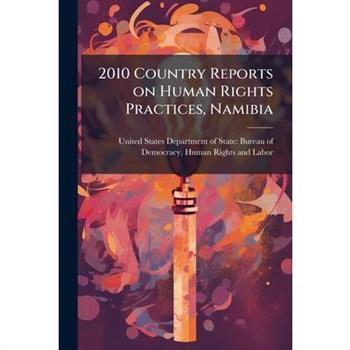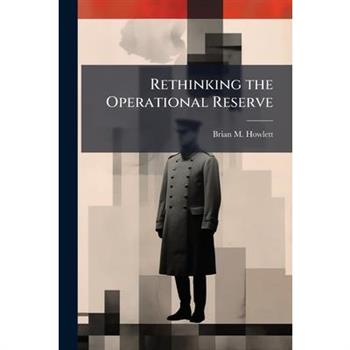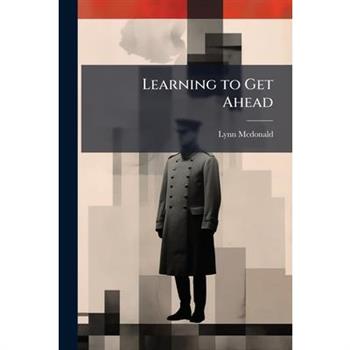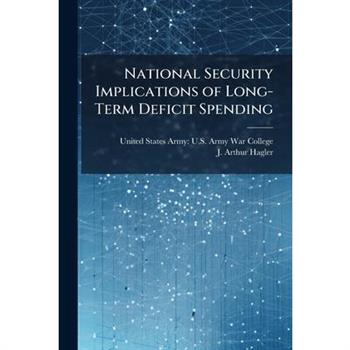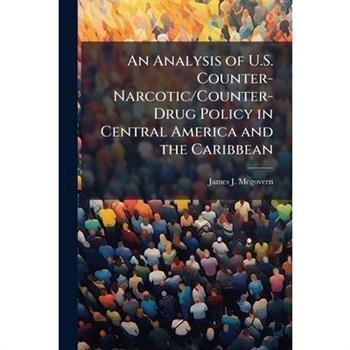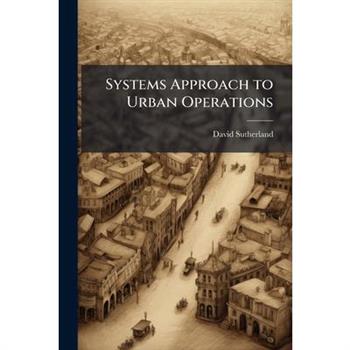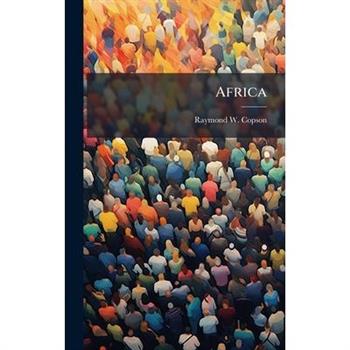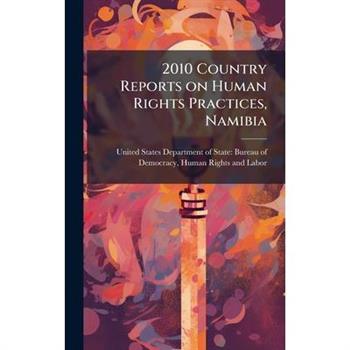The Tech Coup
A tech insider who has been hailed by The New Yorker for her "forceful critique" of Big Tech describes what must be done to stop its erosion of democracy Over the past decades, under the cover of "innovation," technology companies have successfully resisted regulation and have even begun to seize power from governments themselves. Facial recognition firms track citizens for police surveillance. Cryptocurrency has wiped out the personal savings of millions and threatens the stability of the global financial system. Spyware companies sell digital intelligence tools to anyone who can afford them. This new reality--where unregulated technology has become a forceful instrument for autocrats around the world--is terrible news for democracies and citizens. In The Tech Coup, Marietje Schaake offers a behind-the-scenes account of how technology companies crept into nearly every corner of our lives and our governments. She takes us beyond the headlines to high-stakes meetings with human rights defenders, business leaders, computer scientists, and politicians to show how technologies--from social media to artificial intelligence--have gone from being heralded as utopian to undermining the pillars of our democracies. To reverse this existential power imbalance, Schaake outlines game-changing solutions to empower elected officials and citizens alike. Democratic leaders can--and must--resist the influence of corporate lobbying and reinvent themselves as dynamic, flexible guardians of our digital world. Drawing on her experiences in the halls of the European Parliament and among Silicon Valley insiders, Schaake offers a frightening look at our modern tech-obsessed world--and a clear-eyed view of how democracies can build a better future before it is too late.
Humans Cursed by Geography on the Pursuit of Happiness
True to fact stories about people cursed by geography and discriminated by design. Communism, immigration, discrimination, abuse and a girl alone. What will she do? What will she become? While my father was lecturing me, I heard the sound of the whip hitting the poor animal who made a terrible jump upfront from pain. I closed my eyes for a second to hold back my tears. I felt the power of the strike on my back, and I shouted as loud as I could, "Stop, please, STOOOP, you are hurting him."My father grabbed my hand again and forced me to walk with him on the other side of the cart, away from my uncle who was saying to my father in disgust, "You have a very weird child, Giuseppe, not that the others were different. I have never seen anything like that. I pity you."My father ignored him and tried to reason with me, "Cristinuza, this is madness. He's just an animal. They don't have souls."I was sobbing in despair, "Who told you they don't have souls? But what does it matter? He's made of flesh and bones just like us! When someone hits you, you feel pain. It's the same for them. It hurts, Papa, it hurts. The body suffers, not the soul. You know that." "You useless immigrants, coming to the hospital for every headache to spend our money," she hissed through her teeth while pressing with force on my abdomen.I screamed in pain. The look she gave me froze the blood in my veins. I was convinced she'll kill me with the stethoscope."Get up and go pay the ticket. Tell me your name and date of birth," she shouted."Cristina G., 14 November 1975," I murmured more dead than alive."Hmm. Today is your birthday. Instead of celebrating you came here wasting my time." Ceausescu kept his nation in total dark and indigence. Children were sent to work the land to pay the debts the dictator made. Women encouraged to remain pregnant as often as possible. Then December of 1989 comes, and the communist leaders were shot dead on Christmas day. The country went into chaos. Freedom was not as people expected. The rich industry disintegrated at once. Schools were closed, forests were denuded... With faces covered in tears, we kissed our elderly parents and abandoned everything we knew on the pursuit of any future. Italy, one of the most beautiful countries in the world, was our main destination. However, Italians were not happy, and the inferno continued. We are humans without identity. Humans of inferior birth.This manuscript gathers the previous memoirs set in Romania and Italy: Oranges at Christmas in a Communist Country and Ten Years in Italy, Three Weeks a Human. If you read them, please skip this one.
No Standard Oil
In No Standard Oil, environmental policy expert Deborah Gordon examines the widely varying climate impacts of global oils and gases, and proposes solutions to cut greenhouse gas emissions in this sector while making sustainable progress in transitioning to a carbon-free energy future. The next decade will be decisive in the fight against climate change. It will be impossible to hold the planet to a 1.5簞 C temperature rise without controlling methane and CO2 emissions from the oil and gas sector. Contrary to popular belief, the world will not run out of these resources anytime soon. Consumers will continue to demand these abundant resources to fuel their cars, heat their homes, and produce everyday goods like shampoo, pajamas, and paint. But it is becoming more environmentally damaging to supply energy using technologies like fracking oil and liquefying gas. Policymakers, financial investors, environmental advocates, and citizens need to understand what oil and gas are doing to our climate to inform decision-making. In No Standard Oil, Deborah Gordon shows that no two oils or gases are environmentally alike. Each has a distinct, quantifiable climate impact. While all oils and gases pollute, some are much worse for the climate than others. In clear, accessible language, Gordon explains the results of the Oil Climate Index Plus Gas (OCI+), an innovative, open source model that estimates global oil and gas emissions. Gordon identifies the oils and gases from every region of the globe--along with the specific production, processing, and refining activities--that are the most harmful to the planet, and proposes innovative solutions to reduce their climate footprints. Global climate stabilization cannot afford to wait for oil and gas to run out. No Standard Oil shows how we can take immediate, practical steps to cut greenhouse gas emissions in the crucial oil and gas sector while making sustainable progress in transitioning to a carbon-free energy future.
Terrorism and the Military's Role in Domestic Crisis Management
The United States faces a number of significant national security threats, ranging in scope from intercontinental ballistic missiles to the use of weapons of mass destruction (WMD) by terrorists. The debate over the seriousness of the various threats has intensified recently. Various studies and commissions have recommended far reaching changes in the U.S. approach to domestic preparedness and response to threats to the homeland. Many experts believe the probable long term effects of a WMD attack by terrorists on the population, environment, and the economy make it imperative that the U.S. be fully prepared to either deter or interdict an attempted terrorist attack. This paper reviews the current legislation and policies that govern the military's role when supporting law enforcement in a domestic terrorism crisis and highlights some of the issues confronting the U.S. government. To fully understand the military's role in domestic crisis response it is necessary to explore existing national level structures and response options prior to the involvement of military forces. Crisis management is predominately a law enforcement function that manages the resources necessary to prevent or resolve a terrorist incident, including one involving WMD. Current U.S. government terrorism response policy is contained in presidential directives.This work has been selected by scholars as being culturally important, and is part of the knowledge base of civilization as we know it. This work was reproduced from the original artifact, and remains as true to the original work as possible. Therefore, you will see the original copyright references, library stamps (as most of these works have been housed in our most important libraries around the world), and other notations in the work.This work is in the public domain in the United States of America, and possibly other nations. Within the United States, you may freely copy and distribute this work, as no entity (individual or corporate) has a copyright on the body of the work.As a reproduction of a historical artifact, this work may contain missing or blurred pages, poor pictures, errant marks, etc. Scholars believe, and we concur, that this work is important enough to be preserved, reproduced, and made generally available to the public. We appreciate your support of the preservation process, and thank you for being an important part of keeping this knowledge alive and relevant.
Alongside the Best? The Future of the Canadian Forces
The Naval War College Review was established in 1948 and is a forum for discussion of public policy matters of interest to the maritime services. The forthright and candid views of the authors are presented for the professional education of the readers. Articles published are related to the academic and professional activities of the Naval War College. They are drawn from a wide variety of sources in order to inform, stimulate, and challenge readers, and to serve as a catalyst for new ideas. Articles are selected primarily on the basis of their intellectual and literary merits, timeliness, and usefulness and interest to a wide readership. The thoughts and opinions expressed in this publication are those of the authors and are not necessarily those of the U.S. Navy Department or the Naval War College.This work has been selected by scholars as being culturally important, and is part of the knowledge base of civilization as we know it. This work was reproduced from the original artifact, and remains as true to the original work as possible. Therefore, you will see the original copyright references, library stamps (as most of these works have been housed in our most important libraries around the world), and other notations in the work.This work is in the public domain in the United States of America, and possibly other nations. Within the United States, you may freely copy and distribute this work, as no entity (individual or corporate) has a copyright on the body of the work.As a reproduction of a historical artifact, this work may contain missing or blurred pages, poor pictures, errant marks, etc. Scholars believe, and we concur, that this work is important enough to be preserved, reproduced, and made generally available to the public. We appreciate your support of the preservation process, and thank you for being an important part of keeping this knowledge alive and relevant.
2010 Country Reports on Human Rights Practices, Namibia
The world is changing every day in regards to Human Rights, and the United States has a close monitor on it. In 2010, from the Middle East to North Africa, and all around the globe, citizens stood up to demand respect for: human dignity, more promising economic opportunities, greater political liberties, and a say in their own future. Many times they faced tremendous odds and endured violent responses from their different governments. The resulting upheavals are still unfolding today effecting many. This year's Country Reports on Human Rights Practices chronicle these dramatic changes and the stories of the people defending human rights in almost 190 countries around the world; this is one of those reports.This work has been selected by scholars as being culturally important, and is part of the knowledge base of civilization as we know it. This work was reproduced from the original artifact, and remains as true to the original work as possible. Therefore, you will see the original copyright references, library stamps (as most of these works have been housed in our most important libraries around the world), and other notations in the work.This work is in the public domain in the United States of America, and possibly other nations. Within the United States, you may freely copy and distribute this work, as no entity (individual or corporate) has a copyright on the body of the work.As a reproduction of a historical artifact, this work may contain missing or blurred pages, poor pictures, errant marks, etc. Scholars believe, and we concur, that this work is important enough to be preserved, reproduced, and made generally available to the public. We appreciate your support of the preservation process, and thank you for being an important part of keeping this knowledge alive and relevant.
Why SOF Is the Military Force of Choice for AFRICOM
Until recently, the African continent was viewed by the US as having limited strategic importance. The events of 9/11, coupled with lingering African issues of HIV/AIDS, global trade, armed conflicts and terror, has pushed the US to begin viewing Africa strategically. As a sign of Africa's new strategic importance on the world stage Africa Command (AFRICOM) was established to better integrate the civil and military actions on the continent. However, very little has been discussed on what military forces will be used in conjunction with the interagency organizations within AFRICOM to support its strategic, operational and tactical goals. The primary missions of the new command has downplayed traditional military roles by concentrating on humanitarian assistance, building partnership capability, civil affairs projects, improving border and maritime security, and professionalization of the militaries on the continent. The purpose of this paper is to demonstrate why special operations forces (SOF) possess the experience and unique capabilities needed to be the primary military force used in support of AFRICOM. This paper will show how SOF possesses the experience to accomplish the wide array of missions required in Africa; experience in working with joint, coalition and interagency partners; culture and language expertise, which allows them to better interact with host nation (HN) personnel; and the ability to keep their footprint small and unobtrusive on the continent.This work has been selected by scholars as being culturally important, and is part of the knowledge base of civilization as we know it. This work was reproduced from the original artifact, and remains as true to the original work as possible. Therefore, you will see the original copyright references, library stamps (as most of these works have been housed in our most important libraries around the world), and other notations in the work.This work is in the public domain in the United States of America, and possibly other nations. Within the United States, you may freely copy and distribute this work, as no entity (individual or corporate) has a copyright on the body of the work.As a reproduction of a historical artifact, this work may contain missing or blurred pages, poor pictures, errant marks, etc. Scholars believe, and we concur, that this work is important enough to be preserved, reproduced, and made generally available to the public. We appreciate your support of the preservation process, and thank you for being an important part of keeping this knowledge alive and relevant.
Violent Islamist Extremism, the Internet, and the Homegrown Terrorist Threat
This is the first in a series of reports by the Majority and Minority staff of the Senate Committee on Homeland Security and Governmental Affairs (Committee) on the threat of homegrown terrorism inspired by violent Islamist extremism. The Committee initiated an investigation into this threat during the 109th Congress under the leadership of Chairman Susan Collins (R-ME). The first hearing on the homegrown threat considered the potential for radicalization in U.S. prisons, including an examination of the activities of Kevin Lamar James, an American citizen. While in prison, James adopted a variant of violent Islamist ideology, founded an organization known as the Assembly for Authentic Islam (or JIS, the Arabic initials for the group), and began converting fellow prisoners to his cause. Upon release, James recruited members of JIS to commit at least 11 armed robberies, the proceeds from which were to be used to finance attacks against military installations and other targets in southern California. James and another member of the group eventually pled guilty to conspiring to wage war against the United States.This work has been selected by scholars as being culturally important, and is part of the knowledge base of civilization as we know it. This work was reproduced from the original artifact, and remains as true to the original work as possible. Therefore, you will see the original copyright references, library stamps (as most of these works have been housed in our most important libraries around the world), and other notations in the work.This work is in the public domain in the United States of America, and possibly other nations. Within the United States, you may freely copy and distribute this work, as no entity (individual or corporate) has a copyright on the body of the work.As a reproduction of a historical artifact, this work may contain missing or blurred pages, poor pictures, errant marks, etc. Scholars believe, and we concur, that this work is important enough to be preserved, reproduced, and made generally available to the public. We appreciate your support of the preservation process, and thank you for being an important part of keeping this knowledge alive and relevant.
Suicide Terrorism and Its Impact on the Palestinian-Israeli Conflict
Suicide terrorism was introduced to the Palestinian-Israeli conflict in 1994 by the Palestinian militant organization Hamas. There was an average of 4 to 5 suicide attacks per year over the next few years until an exponential increase in 2001 led to a peak of 44 suicide attacks against Israeli targets in 2002. Although the number of suicide attacks has come down since then, the effects of suicide terrorism on the Palestinian-Israeli conflict have lingered, if not intensified. Israeli security measures imposed to curb suicide terrorism have been arguably successful and can be credited for the decline in suicide attacks since 2002. The motivation for Palestinian terror organizations to carry out suicide terrorism against Israel has, however, remained high. This is linked to the increase in support from the Palestinian public for violence against Israel as Palestinian perception of Israeli high-handedness in responding to suicide attacks led many to lose hope in the peace process. Suicide terrorism has undermined the position of nationalist Palestinian groups actively seeking a peaceful settlement with Israel. At the same time, it has weakened international sympathy for the plight of the Palestinian people and given Israel legitimacy for some kind of violent response. Rejectionist Palestinian militant groups have successfully used suicide terrorism to prevent a peaceful resolution to the Palestinian-Israeli conflict.This work has been selected by scholars as being culturally important, and is part of the knowledge base of civilization as we know it. This work was reproduced from the original artifact, and remains as true to the original work as possible. Therefore, you will see the original copyright references, library stamps (as most of these works have been housed in our most important libraries around the world), and other notations in the work.This work is in the public domain in the United States of America, and possibly other nations. Within the United States, you may freely copy and distribute this work, as no entity (individual or corporate) has a copyright on the body of the work.As a reproduction of a historical artifact, this work may contain missing or blurred pages, poor pictures, errant marks, etc. Scholars believe, and we concur, that this work is important enough to be preserved, reproduced, and made generally available to the public. We appreciate your support of the preservation process, and thank you for being an important part of keeping this knowledge alive and relevant.
Rethinking the Operational Reserve
The various service Reserve Components have been a critical part of the Total Force for several decades. Although great efforts were undertaken to ?operationalize? the Reserve Component over the last few years, future requirements will likely not justify a fully manned, trained, and equipped operational reserve. The Department of Defense will not likely be able to simultaneously afford both a robust active component and an operational reserve; expected shortfalls require a change in how the reserves are structured and utilized. With the expected reduction of American presence abroad, and likely economic austerity for the military, the United States must rethink the missions, requirements, and readiness of the reserve components. If elements of the reserve component operated at lower levels of readiness and training, significant costs could be saved. Potential deployment options for the reserves must be predictive, should best leverage existing reserve capabilities, and should accurately assess costs for equipment and resources. Options to save costs include reducing reserve training days, exploring creative solutions to equipment shortfalls, and better assessing training requirements for reserve units. Although it will involve certain risks, the Department of Defense must review and transform the policies and options in which reserve units are trained, equipped, and employed.This work has been selected by scholars as being culturally important, and is part of the knowledge base of civilization as we know it. This work was reproduced from the original artifact, and remains as true to the original work as possible. Therefore, you will see the original copyright references, library stamps (as most of these works have been housed in our most important libraries around the world), and other notations in the work.This work is in the public domain in the United States of America, and possibly other nations. Within the United States, you may freely copy and distribute this work, as no entity (individual or corporate) has a copyright on the body of the work.As a reproduction of a historical artifact, this work may contain missing or blurred pages, poor pictures, errant marks, etc. Scholars believe, and we concur, that this work is important enough to be preserved, reproduced, and made generally available to the public. We appreciate your support of the preservation process, and thank you for being an important part of keeping this knowledge alive and relevant.
Africa
Amounts requested by the Bush Administration for assistance to Africa in FY2004 closely parallel amounts provided in FY2003. Child Survival and Health Assistance, combined with Development Assistance (DA), would total $1.041 billion under the FY2004 request, as compared with a projected $1.062 billion in FY2003. A number of African countries would receive additional assistance if the President's Global AIDS Initiative, to be administered by the Department of State, is funded by Congress. A few would also benefit if the Millennium Challenge Account proposal is approved.This work has been selected by scholars as being culturally important, and is part of the knowledge base of civilization as we know it. This work was reproduced from the original artifact, and remains as true to the original work as possible. Therefore, you will see the original copyright references, library stamps (as most of these works have been housed in our most important libraries around the world), and other notations in the work.This work is in the public domain in the United States of America, and possibly other nations. Within the United States, you may freely copy and distribute this work, as no entity (individual or corporate) has a copyright on the body of the work.As a reproduction of a historical artifact, this work may contain missing or blurred pages, poor pictures, errant marks, etc. Scholars believe, and we concur, that this work is important enough to be preserved, reproduced, and made generally available to the public. We appreciate your support of the preservation process, and thank you for being an important part of keeping this knowledge alive and relevant.
Returning to an Apolitical Officer Corps
Today, evidence shows that military officers are increasingly identifying with the Republican Party. This trend has massive implications and threatens to undermine the trust so critical to a healthy civil-military relationship. Thankfully, history provides a crisis-tested path for the officer corps. An apolitical norm, based on the example set by General George C. Marshall before and during World War II, can steer today's military back to an appropriate, non-partisan posture where sound advice and proper dissent once again have their placeThis work has been selected by scholars as being culturally important, and is part of the knowledge base of civilization as we know it. This work was reproduced from the original artifact, and remains as true to the original work as possible. Therefore, you will see the original copyright references, library stamps (as most of these works have been housed in our most important libraries around the world), and other notations in the work.This work is in the public domain in the United States of America, and possibly other nations. Within the United States, you may freely copy and distribute this work, as no entity (individual or corporate) has a copyright on the body of the work.As a reproduction of a historical artifact, this work may contain missing or blurred pages, poor pictures, errant marks, etc. Scholars believe, and we concur, that this work is important enough to be preserved, reproduced, and made generally available to the public. We appreciate your support of the preservation process, and thank you for being an important part of keeping this knowledge alive and relevant.
Coin/Pa
This paper examines what part military PA professionals have in the fight against insurgencies, and posits feat the PA function should be playing a larger role in any COIN effort. To do so, the historical research methodology will be used, to include a review of COIN history and strategies, followed by a review of the PA function in the U.S. military. The results will be analyzed, and recommendations made as to the future of military PA in COIN campaigns.This work has been selected by scholars as being culturally important, and is part of the knowledge base of civilization as we know it. This work was reproduced from the original artifact, and remains as true to the original work as possible. Therefore, you will see the original copyright references, library stamps (as most of these works have been housed in our most important libraries around the world), and other notations in the work.This work is in the public domain in the United States of America, and possibly other nations. Within the United States, you may freely copy and distribute this work, as no entity (individual or corporate) has a copyright on the body of the work.As a reproduction of a historical artifact, this work may contain missing or blurred pages, poor pictures, errant marks, etc. Scholars believe, and we concur, that this work is important enough to be preserved, reproduced, and made generally available to the public. We appreciate your support of the preservation process, and thank you for being an important part of keeping this knowledge alive and relevant.
Using the United States Information Agency Methods in the Twenty-First Century
The U.S. Information Agency (USIA) was founded in 1952 to coordinate communication with the international community during the Cold War. Since being disbanded in 1999 many government officials have realized that the ability to communicate globally has diminished. By examining the methods the USIA used to communicate internationally, applications can be found to guide the United States Government toward similar methods in the twenty first century. One of the most successful methods of communication was establishing overseas American libraries. Another method the USIA used was addressing the issue of propaganda and how it could affect the strategic communication to other countries. Propaganda, the USIA determined, could be harmful only if it deliberately and consistently misled a populace. Another method of communicating effectively was with consistent interaction with other government departments. In its time, the USIA was an integral collaborator with the State Department and the DOD, and accomplished significant achievements when utilizing interagency cooperation. Similar integration between government components is necessary to achieve a comprehensive and coordinated level of strategic communication in the twenty first century. More effective communication can be achieved in the future by understanding how it was achieved in the past.This work has been selected by scholars as being culturally important, and is part of the knowledge base of civilization as we know it. This work was reproduced from the original artifact, and remains as true to the original work as possible. Therefore, you will see the original copyright references, library stamps (as most of these works have been housed in our most important libraries around the world), and other notations in the work.This work is in the public domain in the United States of America, and possibly other nations. Within the United States, you may freely copy and distribute this work, as no entity (individual or corporate) has a copyright on the body of the work.As a reproduction of a historical artifact, this work may contain missing or blurred pages, poor pictures, errant marks, etc. Scholars believe, and we concur, that this work is important enough to be preserved, reproduced, and made generally available to the public. We appreciate your support of the preservation process, and thank you for being an important part of keeping this knowledge alive and relevant.
Understanding Small Air Forces
The USAF fails due to wrong mind-set.The USAF fails to work effectively with small air forces in combined and coalition operations. The USAF fails to accomplish the task to effectively design and rebuild new air forces, such as the Afghan and Iraqi Air Forces. The USAF further jeopardizes to overcome small air forces as potential future adversary forces. How is it possible to state that the most powerful, well equipped and trained air force in the world fails with tasks like these? The answer is inherent in its greatness, as it creates a mind-set that limits the cognitive flexibility to understand others' contextual situations, such as small air forces. Even though most air forces build upon the same theoretical building stones, the way they apply air power is vastly different. In other words, there is more than one template for the application of air power, and the most useful one is not the USAF's. The reason is that different contextual environments require different methods. These differences become clearer if we play with the contextual environment of the USAF. Imagine that the USAF has approximately 200 fighters, 2000 officers, with their main task to defend a country similar to the state of Alaska.This work has been selected by scholars as being culturally important, and is part of the knowledge base of civilization as we know it. This work was reproduced from the original artifact, and remains as true to the original work as possible. Therefore, you will see the original copyright references, library stamps (as most of these works have been housed in our most important libraries around the world), and other notations in the work.This work is in the public domain in the United States of America, and possibly other nations. Within the United States, you may freely copy and distribute this work, as no entity (individual or corporate) has a copyright on the body of the work.As a reproduction of a historical artifact, this work may contain missing or blurred pages, poor pictures, errant marks, etc. Scholars believe, and we concur, that this work is important enough to be preserved, reproduced, and made generally available to the public. We appreciate your support of the preservation process, and thank you for being an important part of keeping this knowledge alive and relevant.
Equipping Foreign Air Forces
Selecting the right aircraft and associated armament to sell to a foreign air force can be a complex and risky decision. There is potentially much to be gained by making the good sell, but even more to lose due to a bad decision to sell. Many factors go into the decision, and there are often more countries available to sell similar systems if the US government disapproves the sale. Using the three core values presented in US National Security Strategy, along with some case studies from past sales, this paper develops a set of guidelines. These guidelines can be used to assist in making this somewhat complex decision with consistency and logic. Using this information, the paper finishes with a discussion and general recommendations on what should be done when confronted with future cases of weapons releases involving the F-16, JSF, F-22, AMRAAM, and AIM-9X. All data presented was obtained from public access documents such as magazines, books, and US government web sites. The analysis of cases studied is done with the objective of supporting US National Security.This work has been selected by scholars as being culturally important, and is part of the knowledge base of civilization as we know it. This work was reproduced from the original artifact, and remains as true to the original work as possible. Therefore, you will see the original copyright references, library stamps (as most of these works have been housed in our most important libraries around the world), and other notations in the work.This work is in the public domain in the United States of America, and possibly other nations. Within the United States, you may freely copy and distribute this work, as no entity (individual or corporate) has a copyright on the body of the work.As a reproduction of a historical artifact, this work may contain missing or blurred pages, poor pictures, errant marks, etc. Scholars believe, and we concur, that this work is important enough to be preserved, reproduced, and made generally available to the public. We appreciate your support of the preservation process, and thank you for being an important part of keeping this knowledge alive and relevant.
Improving Risk Education to United States Citizens About the Weapons of Mass Destruction Threat
United States (US) citizens must receive personalized risk education about Weapons of Mass Destruction (WMD) threats, thereby creating a potent deterrent to would-be terrorists: a strong, confident citizenry armed with the correct steps to take in the event of a WMD attack. The US Department of Homeland Security's (DHS) Color-Coded Threat Level System communicates to the public the risk of a terrorist attack and preparatory steps to take in order to reduce the likelihood or impact of the attack. The terrorist attack threats include the use of WMD. The problem is that the color-coded system does not offer personalized risk education to the public regarding the WMD attack threat. An announcement of a change in the threat level is not met with discernible reaction from the public to implement preparatory steps. No one seems to know what moving up or down the color-coded system means to them personally, much less what they are reasonably expected to do.This work has been selected by scholars as being culturally important, and is part of the knowledge base of civilization as we know it. This work was reproduced from the original artifact, and remains as true to the original work as possible. Therefore, you will see the original copyright references, library stamps (as most of these works have been housed in our most important libraries around the world), and other notations in the work.This work is in the public domain in the United States of America, and possibly other nations. Within the United States, you may freely copy and distribute this work, as no entity (individual or corporate) has a copyright on the body of the work.As a reproduction of a historical artifact, this work may contain missing or blurred pages, poor pictures, errant marks, etc. Scholars believe, and we concur, that this work is important enough to be preserved, reproduced, and made generally available to the public. We appreciate your support of the preservation process, and thank you for being an important part of keeping this knowledge alive and relevant.
Actions Speak Louder Than Words
The Department of Defense (DOD) recently issued a directive that increases the emphasis on stability operations in military operations. The very first policy statement in the directive states "Stability operations are a core U.S. military mission that the DOD shall be prepared to conduct and support. They shall be given priority comparable to combat operations"1 The DOD has also increased emphasis on information operations (IO) across the spectrum of warfare. Transformation is rampant within the DOD organization, culture and doctrine. Consequently, many of these changes can lead to confusion, redundancy, or even disagreement regarding military operations, capabilities, and employment methods. The utility of IO, for example is commonly misunderstood to mean just psychological operations (PSYOPS) and deception. In reality it includes many more capabilities that are underutilized.This work has been selected by scholars as being culturally important, and is part of the knowledge base of civilization as we know it. This work was reproduced from the original artifact, and remains as true to the original work as possible. Therefore, you will see the original copyright references, library stamps (as most of these works have been housed in our most important libraries around the world), and other notations in the work.This work is in the public domain in the United States of America, and possibly other nations. Within the United States, you may freely copy and distribute this work, as no entity (individual or corporate) has a copyright on the body of the work.As a reproduction of a historical artifact, this work may contain missing or blurred pages, poor pictures, errant marks, etc. Scholars believe, and we concur, that this work is important enough to be preserved, reproduced, and made generally available to the public. We appreciate your support of the preservation process, and thank you for being an important part of keeping this knowledge alive and relevant.
Learning to Get Ahead
The Improvised Explosive Device (IED) threat has been termed the "grand challenge" by leading counter-terrorism organizations. What started as a nuisance has turned into a strategic threat. The US government is spending billions of dollars and thousands of man-hours to develop countermeasures and defeat technologies. Some countermeasures and technical solutions are quick; many are too slow to keep up with warfighter needs. The enemy, on the other hand, adapts quickly and develops weapons that are cheap and easy to build. The fundamental question driving this research is: how can an organization learn more effectively in order to become more flexible, adaptable, and innovative, while learning to make decisions faster and more proactively? This research will address the significance of learning at the operational and strategic levels, and the effect this learning has on the tactical level. Specifically, the research will draw on LTC John Nagl's "learning organization" concept as expressed in his work Learning to Eat Soup with a Knife: Counterinsurgency Lessons from Malaya and Vietnam. Additionally, this paper will draw on a historical example of the British experience with the IED threat in the Northern Ireland conflict. Finally, this research project will discuss how innovative intelligence analysis can help further drive down the decision timelines. Learning and innovative organizations are key to countering current and future asymmetric weapons threats.This work has been selected by scholars as being culturally important, and is part of the knowledge base of civilization as we know it. This work was reproduced from the original artifact, and remains as true to the original work as possible. Therefore, you will see the original copyright references, library stamps (as most of these works have been housed in our most important libraries around the world), and other notations in the work.This work is in the public domain in the United States of America, and possibly other nations. Within the United States, you may freely copy and distribute this work, as no entity (individual or corporate) has a copyright on the body of the work.As a reproduction of a historical artifact, this work may contain missing or blurred pages, poor pictures, errant marks, etc. Scholars believe, and we concur, that this work is important enough to be preserved, reproduced, and made generally available to the public. We appreciate your support of the preservation process, and thank you for being an important part of keeping this knowledge alive and relevant.
The Future of American Power
The continued reliance on imported fossil fuels presents significant economic, political, military and strategic challenges to the United States. The purchase of energy sources from outside the U.S. is typically not a problem, until they are purchased from unfriendly and unstable parts of the world. The U.S. is also facing a challenge to its global leadership. The rise of Chinese and Indian economic and political power complicates the execution of U.S. National Security Strategy. Additionally, the absence of the U.S. has not stopped the momentum towards international environmental agreements and the U.S. risks being left behind. Finally, the U.S. expends significant levels of human, political and monetary capital to ensure access to foreign sources of energyThis work has been selected by scholars as being culturally important, and is part of the knowledge base of civilization as we know it. This work was reproduced from the original artifact, and remains as true to the original work as possible. Therefore, you will see the original copyright references, library stamps (as most of these works have been housed in our most important libraries around the world), and other notations in the work.This work is in the public domain in the United States of America, and possibly other nations. Within the United States, you may freely copy and distribute this work, as no entity (individual or corporate) has a copyright on the body of the work.As a reproduction of a historical artifact, this work may contain missing or blurred pages, poor pictures, errant marks, etc. Scholars believe, and we concur, that this work is important enough to be preserved, reproduced, and made generally available to the public. We appreciate your support of the preservation process, and thank you for being an important part of keeping this knowledge alive and relevant.
Agroterrorism
Although U.S. intelligence agencies have not identified any terrorist acts targeting agricultural production (i.e., agroterrorism) in the United States to date, the events of September 11, 2001 have awakened the nation to their possibility. Some experts estimate that a single agroterrorist attack using a highly contagious livestock disease could cost between $10 billion and $30 billion to the U.S. economy. Experts also recognize weaknesses in the ability of most nations to prevent and contain a biological attack on their agricultural resources. Limited inspection capabilities, lack of rapid diagnostic tools, inadequate coordination between inspection agencies, and little biosafety training of farmers, agronomists, and veterinarians are among the recognized weaknesses.This work has been selected by scholars as being culturally important, and is part of the knowledge base of civilization as we know it. This work was reproduced from the original artifact, and remains as true to the original work as possible. Therefore, you will see the original copyright references, library stamps (as most of these works have been housed in our most important libraries around the world), and other notations in the work.This work is in the public domain in the United States of America, and possibly other nations. Within the United States, you may freely copy and distribute this work, as no entity (individual or corporate) has a copyright on the body of the work.As a reproduction of a historical artifact, this work may contain missing or blurred pages, poor pictures, errant marks, etc. Scholars believe, and we concur, that this work is important enough to be preserved, reproduced, and made generally available to the public. We appreciate your support of the preservation process, and thank you for being an important part of keeping this knowledge alive and relevant.
National Security Implications of Long-Term Deficit Spending
This AY2010 USAWC student research paper explores the impact of ongoing deficit spending in terms of future defense budgets, investor confidence and interest rates, the economic impact of competition for financing, implications for international influence and potential financial leverage of creditors, and our ethical responsibility to future generations. The views expressed in the document are those of the author and do not necessarily reflect the official policy or position of the U.S. Army War College, the U.S. Department of the Army, the U.S. Department of Defense, or the U.S. Government.This work has been selected by scholars as being culturally important, and is part of the knowledge base of civilization as we know it. This work was reproduced from the original artifact, and remains as true to the original work as possible. Therefore, you will see the original copyright references, library stamps (as most of these works have been housed in our most important libraries around the world), and other notations in the work.This work is in the public domain in the United States of America, and possibly other nations. Within the United States, you may freely copy and distribute this work, as no entity (individual or corporate) has a copyright on the body of the work.As a reproduction of a historical artifact, this work may contain missing or blurred pages, poor pictures, errant marks, etc. Scholars believe, and we concur, that this work is important enough to be preserved, reproduced, and made generally available to the public. We appreciate your support of the preservation process, and thank you for being an important part of keeping this knowledge alive and relevant.
An Analysis of U.S. Counter-Narcotic/Counter-Drug Policy in Central America and the Caribbean
A detailed review of United States government publications on counter-narcotics throughout the Interagency results in the discovery of upbeat and positive estimates of our nation's success in the current war on drugs. An enormous national effort has been made to confront the scourge of illicit drug trafficking and its domestic use over the last three decades, leading to some well-documented victories. However, a number of outspoken critics both at home and abroad have put in question these successes and suggest there may be issues worthy of closer scrutiny with respect to U.S. counter-narcotic/counter-drug (CN/CD) policy. The Office of National Drug Control Policy (ONDCP) highlights President George W. Bush's plan by focusing on its three principal goals: Stopping Drug Use Before It Starts--Education and Community Action; Intervening and Healing America's Drug Users; and Disrupting the Market for Illicit Drugs.1 Although sources of narcotics range from Afghanistan to Myanmar to Colombia, the most prolific import source of drugs found on U.S. streets continues to be from our southern neighbors, a region that has been the focus of a War on Drugs since as early as the 1980s.This work has been selected by scholars as being culturally important, and is part of the knowledge base of civilization as we know it. This work was reproduced from the original artifact, and remains as true to the original work as possible. Therefore, you will see the original copyright references, library stamps (as most of these works have been housed in our most important libraries around the world), and other notations in the work.This work is in the public domain in the United States of America, and possibly other nations. Within the United States, you may freely copy and distribute this work, as no entity (individual or corporate) has a copyright on the body of the work.As a reproduction of a historical artifact, this work may contain missing or blurred pages, poor pictures, errant marks, etc. Scholars believe, and we concur, that this work is important enough to be preserved, reproduced, and made generally available to the public. We appreciate your support of the preservation process, and thank you for being an important part of keeping this knowledge alive and relevant.
The Role of Torture in Support of the Global War on Terror Intelligence Collection Effort
The September 11, 2001 attacks on the United States ushered in a new way of looking at the world for Americans. For the first time since World War II, America's homeland had suffered an attack from outside forces. Unlike the attacks on military facilities in Hawaii, however, this act of violence was directed at civilians with the intent of spreading terror among them. The use of hijacked airliners as instruments of terror was a wake up call and it opened the nation's eyes to a sobering reality: the Atlantic and Pacific Oceans were no longer sufficient barriers to the scourge of transnational terrorism threatening the rest of the world. In the eyes of President George W. Bush and his administration, this new reality dictated a dramatic shift in thinking about the challenges of combating terrorism. Weapons of mass destruction, capable of wreaking even greater destruction and loss of life, were suddenly uncomfortably realistic possibilities - especially considering America's unmatched military superiority and the resultant probable use by future opponents of asymmetric means to attack the nation.This work has been selected by scholars as being culturally important, and is part of the knowledge base of civilization as we know it. This work was reproduced from the original artifact, and remains as true to the original work as possible. Therefore, you will see the original copyright references, library stamps (as most of these works have been housed in our most important libraries around the world), and other notations in the work.This work is in the public domain in the United States of America, and possibly other nations. Within the United States, you may freely copy and distribute this work, as no entity (individual or corporate) has a copyright on the body of the work.As a reproduction of a historical artifact, this work may contain missing or blurred pages, poor pictures, errant marks, etc. Scholars believe, and we concur, that this work is important enough to be preserved, reproduced, and made generally available to the public. We appreciate your support of the preservation process, and thank you for being an important part of keeping this knowledge alive and relevant.
An Investigation of B-2 Pilot Force Reserve Component Augmentation
The B-2 "Spirit" stealth bomber pilot community is experiencing a number of factors that influence their ability to produce combat sorties. Because of career concerns, pilots often move to a career-broadening assignment, intermediate service school or other assignment after a relatively short period of three to four years flying the B-2. A number of pilots also choose to separate from active duty to enter the major airline industry. Due to the resulting limited number of B-2 instructor pilots the Air Force contracted for civilian B-2 academic instructors who are not as qualified to instruct as the B-2 instructor pilots they replaced. These factors have negatively influenced the level of pilot experience with the B-2.This paper explores the concept of utilizing Air Force Reserve pilots to provide a source of continuity within the B-2 community.This work has been selected by scholars as being culturally important, and is part of the knowledge base of civilization as we know it. This work was reproduced from the original artifact, and remains as true to the original work as possible. Therefore, you will see the original copyright references, library stamps (as most of these works have been housed in our most important libraries around the world), and other notations in the work.This work is in the public domain in the United States of America, and possibly other nations. Within the United States, you may freely copy and distribute this work, as no entity (individual or corporate) has a copyright on the body of the work.As a reproduction of a historical artifact, this work may contain missing or blurred pages, poor pictures, errant marks, etc. Scholars believe, and we concur, that this work is important enough to be preserved, reproduced, and made generally available to the public. We appreciate your support of the preservation process, and thank you for being an important part of keeping this knowledge alive and relevant.
The Army National Gaurd and the Department of Homeland Security
This AY-10 USAWC resident student paper argues that the citizen-soldiers of the Army National Guard have lost their focus and original purpose as a State Militia available for disaster recovery operations, assisting law enforcement, and defending the homeland. The author believes that the pressure felt by the current operations tempo to use the Army National Guard as an operational reserve can only be alleviated by moving the Army National Guard from the Department of Defense to the Department of Homeland Security. He asserts that such a move will not cut off relationships developed between the Army and the National Guard, two organizations with a common history, but recognizes that the two organizations should have different primary missions of homeland security (National Guard) and national defense (U.S. Army). He bases his argument in part upon the fact that this realization of similar capabilities but different missions is already working between the U.S. Coast Guard and the Department of Navy.This work has been selected by scholars as being culturally important, and is part of the knowledge base of civilization as we know it. This work was reproduced from the original artifact, and remains as true to the original work as possible. Therefore, you will see the original copyright references, library stamps (as most of these works have been housed in our most important libraries around the world), and other notations in the work.This work is in the public domain in the United States of America, and possibly other nations. Within the United States, you may freely copy and distribute this work, as no entity (individual or corporate) has a copyright on the body of the work.As a reproduction of a historical artifact, this work may contain missing or blurred pages, poor pictures, errant marks, etc. Scholars believe, and we concur, that this work is important enough to be preserved, reproduced, and made generally available to the public. We appreciate your support of the preservation process, and thank you for being an important part of keeping this knowledge alive and relevant.
To Know Thy Enemy
This study examines the role of sociological intelligence in strategy development. It proposes a methodological approach to examining the socio-cultural dynamics at work within an adversary society and makes recommendations to improve sociological intelligence collecting to enhance United States strategy. Strategy in ancient Rome and U.S. policy in Iraq are used as case studies to illustrate successful and unsuccessful techniques. By providing a scholarly and analytical framework for approaching the complex questions relating to sociological and cultural intelligence, this work gives policy makers, strategists, and intelligence personnel the insights they need to incorporate these critical facets of the enemys essential dynamics into strategic and operational plans.This work has been selected by scholars as being culturally important, and is part of the knowledge base of civilization as we know it. This work was reproduced from the original artifact, and remains as true to the original work as possible. Therefore, you will see the original copyright references, library stamps (as most of these works have been housed in our most important libraries around the world), and other notations in the work.This work is in the public domain in the United States of America, and possibly other nations. Within the United States, you may freely copy and distribute this work, as no entity (individual or corporate) has a copyright on the body of the work.As a reproduction of a historical artifact, this work may contain missing or blurred pages, poor pictures, errant marks, etc. Scholars believe, and we concur, that this work is important enough to be preserved, reproduced, and made generally available to the public. We appreciate your support of the preservation process, and thank you for being an important part of keeping this knowledge alive and relevant.
Dehydrated National Security
This study explores water scarcity as a threat to US national security. The region in question is the "arc of instability" extending from North Africa to China. Given the wide array of US interests in this region, the study specifically addresses the question; "Does US national strategy provide the most advantageous approach to protect national security interests in an increasingly water-scarce world?" Three major conclusions surfaced. First, water scarcity is an emerging problem that is destabilizing and threatens US interests. Second, current water policy is bared solely on a moral imperative to help the needy but stops well short of addressing water scarcity as a security threat either now or in the future. Third, advancing and protecting US interests will become more difficult as scarcity becomes more acute in the first quarter of this century. The study begins with a primer on water availability and its destabilizing nature. Next, four root causes of scarcity are classified and then related to US national interests. The assessment that US strategy does not address scarcity results from an examination of primary sources of current US strategy. Finally, critical elements pertinent to a security strategy that addresses the threat of water are offered along with areas for further study.This work has been selected by scholars as being culturally important, and is part of the knowledge base of civilization as we know it. This work was reproduced from the original artifact, and remains as true to the original work as possible. Therefore, you will see the original copyright references, library stamps (as most of these works have been housed in our most important libraries around the world), and other notations in the work.This work is in the public domain in the United States of America, and possibly other nations. Within the United States, you may freely copy and distribute this work, as no entity (individual or corporate) has a copyright on the body of the work.As a reproduction of a historical artifact, this work may contain missing or blurred pages, poor pictures, errant marks, etc. Scholars believe, and we concur, that this work is important enough to be preserved, reproduced, and made generally available to the public. We appreciate your support of the preservation process, and thank you for being an important part of keeping this knowledge alive and relevant.
Globalization and Asymmetrical Warfare
Globalization is having a tremendous effect on the ability of terrorist and criminal organizations to act on a global scale. These organizations are using asymmetrical means to target U.S. interests at home and abroad. The events of September 11th were the culminating effect of this trend that has played an increasingly greater role in the world in which we live. This research paper analyzes the globalization trend and the effect it is having on the ability to wage this new type of war. The negative effects of globalization have continued to create a large disenfranchised population primarily centered in the Middle East, Africa, and Asia. This disenfranchised population has become the recruitment pool and their countries have become training bases for the networked terrorist and criminal who take advantage of the tools of globalization. Those tools include the internet that provides secure means of communication, the technology that enables them to act, and the porous environment that allows one to move around the world undetected.This work has been selected by scholars as being culturally important, and is part of the knowledge base of civilization as we know it. This work was reproduced from the original artifact, and remains as true to the original work as possible. Therefore, you will see the original copyright references, library stamps (as most of these works have been housed in our most important libraries around the world), and other notations in the work.This work is in the public domain in the United States of America, and possibly other nations. Within the United States, you may freely copy and distribute this work, as no entity (individual or corporate) has a copyright on the body of the work.As a reproduction of a historical artifact, this work may contain missing or blurred pages, poor pictures, errant marks, etc. Scholars believe, and we concur, that this work is important enough to be preserved, reproduced, and made generally available to the public. We appreciate your support of the preservation process, and thank you for being an important part of keeping this knowledge alive and relevant.
If Not Never, When? Negotiations Between Governments and Terrorists
Current US policy states that the government will not negotiate with terrorists. However, if a state will not negotiate with terrorists, how will a conflict end? This study analyzes three case studies involving governments that negotiated with a terrorist organization. Examining negotiations between England and the Irish Republican Army, Spain and Euskadi ta Askatasuna, and Israel and the Palestinian Liberation Organization, the study provides valuable insight into certain common factors underlying the decision to negotiate. Comparing the government's objectives; effectiveness of policies; and, political support, in addition to, the terrorist's objectives; the military and political strength of the terrorist organization; level of support; and, the level of violence, provides a contextual foundation for the study. Analyzing these factors' influence on facilitating negotiations and their potential outcome offers the reader insight into when future negotiations are more likely. In each case study, an individual factor's influence varied.This work has been selected by scholars as being culturally important, and is part of the knowledge base of civilization as we know it. This work was reproduced from the original artifact, and remains as true to the original work as possible. Therefore, you will see the original copyright references, library stamps (as most of these works have been housed in our most important libraries around the world), and other notations in the work.This work is in the public domain in the United States of America, and possibly other nations. Within the United States, you may freely copy and distribute this work, as no entity (individual or corporate) has a copyright on the body of the work.As a reproduction of a historical artifact, this work may contain missing or blurred pages, poor pictures, errant marks, etc. Scholars believe, and we concur, that this work is important enough to be preserved, reproduced, and made generally available to the public. We appreciate your support of the preservation process, and thank you for being an important part of keeping this knowledge alive and relevant.
Systems Approach to Urban Operations
This monograph describes a possible technique to allow military planners to identify key objectives that may be affected in gaining control of a city without destroying it. This technique involves viewing a city as a complex "system of systems" and offers the planner insights as to where to apply military means to achieve the desired ends. While much has been written on Effect Based Operations (EBO), this monograph attempts to "operationalize" the concept. It presents a planning technique to assist in identifying targets, understanding target interrelationships, and analyzing second and third order effects. This study uses the urban environment to present this planning technique. The primary research question is: Is it possible to seize and control a city without destroying it? The secondary question is: Is there a systems approach process to achieve military success in an urban environment? The purpose of this paper is to provide the operational commander with an approach to manage the complexity of the urban environment. It should provide the reader with a systems approach that is grounded in doctrine, a methodology to reduce complexity, and a practical planning approach to assist in urban operations. The systems approach discussed in this paper allows commanders to seize control of a city without destroying it. The approach can be seen as a graduated response matrix where critical requirements are affected in sequence in order to achieve a desired result. While it is impossible to determine to which threshold the adversary would relinquish his control of the city (aim), the systems approach does provide a method to gradually reach that threshold. In addition, the systems approach allows commanders to war-game and record the effects of an action throughout the entire greater system. This provides the commander with an analysis tool that captures potential second and third order effects that may or may not be desired. This is a technique that should be incorporateThis work has been selected by scholars as being culturally important, and is part of the knowledge base of civilization as we know it. This work was reproduced from the original artifact, and remains as true to the original work as possible. Therefore, you will see the original copyright references, library stamps (as most of these works have been housed in our most important libraries around the world), and other notations in the work.This work is in the public domain in the United States of America, and possibly other nations. Within the United States, you may freely copy and distribute this work, as no entity (individual or corporate) has a copyright on the body of the work.As a reproduction of a historical artifact, this work may contain missing or blurred pages, poor pictures, errant marks, etc. Scholars believe, and we concur, that this work is important enough to be preserved, reproduced, and made generally available to the public. We appreciate your support of the preservation process, and thank you for being an important part of keeping this knowledge alive and relevant.
Terrorist Use of the Internet and Related Information Technologies
Research Question: how will U.S. national security policy be affected by terrorist exploitation of the Internet and related information technologies? Information operations are nothing new; they have been used in military operations throughout the history of conflict. Arguably, however, the combination of breakneck speed of technological advances in information management systems and evolving threats to U.S. national security are redefining forever the nature of warfare. Some proponents have seen the great promise of information operations as the capability to mitigate, if not eliminate, the fog and friction of war by "seeing all." Consequently, current information operations doctrine seems to be focused squarely on the advantages of using leading edge technologies to obtain real-time intelligence, surveillance and reconnaissance, thus creating a "common operating picture" of a more or less traditional battlefield. However, as the recent terrorist attacks in New York and Washington illustrate, we will likely continue to face significant threats from elusive, unconventional enemies operating in the shadows of a nontraditional "battlefield." Moreover, because of the proliferation of cheap, dual-use information technology, these enemies may possess now, or acquire in the future, the technical expertise and hardware to further their own political agendas, harass and frustrate U.S. attempts to conduct information operations (perhaps even to the extent of negating U.S. information superiority altogether), or directly attack the U.S. infrastructure or population. Information technology has thus given terrorists their own ability to "see all" on their own traditional battlefield: the populations and civilian infrastructure of the nations they wish to influence or destroy. In order to answer the research question, the monograph will examine how transnational actors use the Internet and related information technologies to further their interests, with special emphasis on uncThis work has been selected by scholars as being culturally important, and is part of the knowledge base of civilization as we know it. This work was reproduced from the original artifact, and remains as true to the original work as possible. Therefore, you will see the original copyright references, library stamps (as most of these works have been housed in our most important libraries around the world), and other notations in the work.This work is in the public domain in the United States of America, and possibly other nations. Within the United States, you may freely copy and distribute this work, as no entity (individual or corporate) has a copyright on the body of the work.As a reproduction of a historical artifact, this work may contain missing or blurred pages, poor pictures, errant marks, etc. Scholars believe, and we concur, that this work is important enough to be preserved, reproduced, and made generally available to the public. We appreciate your support of the preservation process, and thank you for being an important part of keeping this knowledge alive and relevant.
International Armaments Cooperation in the Post-Cold War Era
During the height ofthe Cold War, the United States Department of Defense had a focused acquisition effort to produce major weapons systems. These weapons systems were developed as single service acquisition efforts. Their high costs were justified by their sophisticated technology, which enabled the U.S. military to gain and maintain air and ground combat superiority. Such acquisition practices significantly increased the defense budget, which peaked in 1985 at $414 billion. However, with the collapse of the Soviet Union and an absence of a single galvanizing threat to global security, the U.S. has been forced to drastically cut defense spending. Although there is no longer a central security concern for the U.S., there are new threats that require new defense objectives-- and containing these threats is not cheap. Senior defense leaders agree that the U.S. policy of fielding technologically superior weapon systems will not change. What alternative, then, will effectively enable the U.S. to meet reduced spending goals, yet maintain current national security levels? This thesis suggests that international armaments cooperation is one such alternative.This work has been selected by scholars as being culturally important, and is part of the knowledge base of civilization as we know it. This work was reproduced from the original artifact, and remains as true to the original work as possible. Therefore, you will see the original copyright references, library stamps (as most of these works have been housed in our most important libraries around the world), and other notations in the work.This work is in the public domain in the United States of America, and possibly other nations. Within the United States, you may freely copy and distribute this work, as no entity (individual or corporate) has a copyright on the body of the work.As a reproduction of a historical artifact, this work may contain missing or blurred pages, poor pictures, errant marks, etc. Scholars believe, and we concur, that this work is important enough to be preserved, reproduced, and made generally available to the public. We appreciate your support of the preservation process, and thank you for being an important part of keeping this knowledge alive and relevant.
Air Force Intelligence Officer Regional Specialization
In a security environment characterized by regional conflicts, complex political situations, and accompanying constraints, the need for accurate intelligence analysis has never been greater. Though the primary function of intelligence is to understand adversaries, the Air Force intelligence career field has not developed its own cadre of regional and country-specific experts. With this in mind, this thesis addresses the question: "Is Air Force intelligence properly organized and trained to provide regional expertise to theater air component commanders?" The study answers this question by addressing the role, organization, and success of regional intelligence specialists at the theater air component level in major operations since the end of the Cold War, including Operations Desert Storm, Allied Force, Enduring Freedom, and Iraqi Freedom. Next, the thesis examines the current state of intelligence officer training to assess how well it prepares officers to provide regional analysis at the theater air component level. It then delves into how the Air Force intelligence community manages its regional specialists, taking into account promotions, preferred career paths, and organizational culture. The thesis concludes with findings, recommendations, and areas warranting further study. The thesis finds the Air Force has not properly organized and trained its intelligence function to provide regional expertise to theater commanders.This work has been selected by scholars as being culturally important, and is part of the knowledge base of civilization as we know it. This work was reproduced from the original artifact, and remains as true to the original work as possible. Therefore, you will see the original copyright references, library stamps (as most of these works have been housed in our most important libraries around the world), and other notations in the work.This work is in the public domain in the United States of America, and possibly other nations. Within the United States, you may freely copy and distribute this work, as no entity (individual or corporate) has a copyright on the body of the work.As a reproduction of a historical artifact, this work may contain missing or blurred pages, poor pictures, errant marks, etc. Scholars believe, and we concur, that this work is important enough to be preserved, reproduced, and made generally available to the public. We appreciate your support of the preservation process, and thank you for being an important part of keeping this knowledge alive and relevant.
Air National Guard Structure for the Twenty-First Century
For many years, the Air National Guard acted "...more or less in parallel with active duty counterparts, working in unison but only interacting occasionally for exercises and such." Today, on the other hand, the Air National Guard is extensively employed worldwide with both the active and reserve components as part of the Total Force. During the Cold War, the Air National Guard represented a "strategic reserve" not unlike an off-the-shelf capability which could only be utilized in times of great crisis or war. In an era of ever-tightening budgets, drastic decreases in manpower, on-going global war efforts, and larger responsibilities within the CONUS, is there any wonder that Total Force Integration continues to receive great attention on Capitol Hill?This work has been selected by scholars as being culturally important, and is part of the knowledge base of civilization as we know it. This work was reproduced from the original artifact, and remains as true to the original work as possible. Therefore, you will see the original copyright references, library stamps (as most of these works have been housed in our most important libraries around the world), and other notations in the work.This work is in the public domain in the United States of America, and possibly other nations. Within the United States, you may freely copy and distribute this work, as no entity (individual or corporate) has a copyright on the body of the work.As a reproduction of a historical artifact, this work may contain missing or blurred pages, poor pictures, errant marks, etc. Scholars believe, and we concur, that this work is important enough to be preserved, reproduced, and made generally available to the public. We appreciate your support of the preservation process, and thank you for being an important part of keeping this knowledge alive and relevant.
Suicide Bombing
Individual suicide bombers are difficult to detect and apprehend, therefore governments plagued by these attacks are better served by convincing the leaders of terrorist groups not to conduct such campaigns. To accomplish this, however, government leaders must understand exactly what motivates a terror group to turn to this method of attack in the first place. The central question of this thesis is: why have terrorist organizations chosen to use suicide bombing at some points in their struggles but not in others? Terrorist leaders are influenced by the desire to increase the power, prestige, and legitimacy of their organizations, and by the tactical efficiency of suicide terrorism in the face of limited potential options. The desire to create an independent state or to remove "foreign infidels" from sacred lands is also a powerful motivator that encourages the use of the suicide bombing tactic. Finally, a permissive environment is necessary to sustain the campaign and to allow the accomplishment of its objectives. The importance of this permissive environment to start, accelerate, or sustain a suicide bombing campaign cannot be overstated. It is the single most important factor in determining whether suicide violence will take root. If suicide attacks do not resonate with the desired population, the perpetrating organization will seek other methods to achieve its objectives.This work has been selected by scholars as being culturally important, and is part of the knowledge base of civilization as we know it. This work was reproduced from the original artifact, and remains as true to the original work as possible. Therefore, you will see the original copyright references, library stamps (as most of these works have been housed in our most important libraries around the world), and other notations in the work.This work is in the public domain in the United States of America, and possibly other nations. Within the United States, you may freely copy and distribute this work, as no entity (individual or corporate) has a copyright on the body of the work.As a reproduction of a historical artifact, this work may contain missing or blurred pages, poor pictures, errant marks, etc. Scholars believe, and we concur, that this work is important enough to be preserved, reproduced, and made generally available to the public. We appreciate your support of the preservation process, and thank you for being an important part of keeping this knowledge alive and relevant.
Convergence or Divergence
This paper suggests that Air Force doctrine, in general, and space doctrine, in particular, are moving in different directions and that this divergence poses a threat to our future capability as an air and space force. It identifies the airman and the institution as the root cause for this divergence. Airmen think too narrowly in their specialty and work in institutions that resist collective cooperation, broad perspectives, and overarching doctrine. It suggests mentoring airmen with broader perspectives and changing the Air Force institution to be consistent with combining air and space capabilities in an overarching doctrine of air and space power. The research was prepared by reviewing key air and space doctrinal documents published since 1918 and interviewing people at all levels of involvement in air and space doctrinal development-both inside and outside the Air Force. These sources were combined to analyze the issues and support the thesis.This work has been selected by scholars as being culturally important, and is part of the knowledge base of civilization as we know it. This work was reproduced from the original artifact, and remains as true to the original work as possible. Therefore, you will see the original copyright references, library stamps (as most of these works have been housed in our most important libraries around the world), and other notations in the work.This work is in the public domain in the United States of America, and possibly other nations. Within the United States, you may freely copy and distribute this work, as no entity (individual or corporate) has a copyright on the body of the work.As a reproduction of a historical artifact, this work may contain missing or blurred pages, poor pictures, errant marks, etc. Scholars believe, and we concur, that this work is important enough to be preserved, reproduced, and made generally available to the public. We appreciate your support of the preservation process, and thank you for being an important part of keeping this knowledge alive and relevant.
Devils in the Dialogue
The Air Force began its existence in 1947 as a bright star with almost limitless potential to defend the nation. Today, however, the Air Force appears to struggle in communicating its value and trustworthiness, and congressional support has waned. The relationship is strained if not adversarial. The more effectively the Air Force engages with Congress, the better the Air Force can posture to defend national interests. The intent of this paper is to understand the current relationship between the Air Force and Congress and determine if this relationship is configured in optimum fashion to contribute to the nation's security. This paper concentrates on the Air Force's Legislative Liaison (SAF/LL) office as a conduit to effectively communicate the Air Force's needs to Congress, which is vitally important during periods of struggle. A focused review of current interactions, both formal and informal, as well as comparison with the other services, will highlight strengths and weaknesses within the Air Force's Legislative Liaison office and it's ability to provide Congressional support. Synthesis of the information provides recommendations for the Air Force to better coordinate its strategic messaging and methodology with Congress via the legislative liaison office. The SAF/LL office has a unique opportunity to bridge the gap between the two organizations and eliminate the devils in the dialogue.This work has been selected by scholars as being culturally important, and is part of the knowledge base of civilization as we know it. This work was reproduced from the original artifact, and remains as true to the original work as possible. Therefore, you will see the original copyright references, library stamps (as most of these works have been housed in our most important libraries around the world), and other notations in the work.This work is in the public domain in the United States of America, and possibly other nations. Within the United States, you may freely copy and distribute this work, as no entity (individual or corporate) has a copyright on the body of the work.As a reproduction of a historical artifact, this work may contain missing or blurred pages, poor pictures, errant marks, etc. Scholars believe, and we concur, that this work is important enough to be preserved, reproduced, and made generally available to the public. We appreciate your support of the preservation process, and thank you for being an important part of keeping this knowledge alive and relevant.
Al Qaeda, Caliphate and Antonio Gramsci
The purpose of this research is to discuss how al Qaeda is organized, conducts operations and constantly manages relationships in comparison to the ideas and thoughts of Antonio Gramsci. Gramsci was a prolific Italian socialist writer whose thoughts on using ideology to gain and exploit hegemony may help explain the words and actions of al Qaeda. The analysis determined that al Qaeda uses a strong promotion of its philosophy to create a change in hegemony via a culture focused on uniting Muslims against a primary enemy (United States). Al Qaeda also supports various education efforts which may provide foot soldiers. Finally, al Qaeda continuously seeks like-minded groups and exploits all means to communicate to the masses in order to motivate action. To counter, the United States should take several specific actions.This work has been selected by scholars as being culturally important, and is part of the knowledge base of civilization as we know it. This work was reproduced from the original artifact, and remains as true to the original work as possible. Therefore, you will see the original copyright references, library stamps (as most of these works have been housed in our most important libraries around the world), and other notations in the work.This work is in the public domain in the United States of America, and possibly other nations. Within the United States, you may freely copy and distribute this work, as no entity (individual or corporate) has a copyright on the body of the work.As a reproduction of a historical artifact, this work may contain missing or blurred pages, poor pictures, errant marks, etc. Scholars believe, and we concur, that this work is important enough to be preserved, reproduced, and made generally available to the public. We appreciate your support of the preservation process, and thank you for being an important part of keeping this knowledge alive and relevant.
Morality in Modern Aerial Warfare
There is a moral way to wage war, be it in the air, on the sea, or on the ground. This paper contends that the US Air Force can maintain a high level of morality in the conduct of air operations. In doing so, we will save the lives of both our airmen and innocents on the ground. The authors intend to show that there is a long tradition of morality in war and that we can and should maintain high standards. We do NOT advocate, nor should the reader infer that we believe it is possible to conduct a war in which no innocents are harmed. We DO urge senior commanders to balance the proportionality of probable non-combatant casualties against the military necessity of the given targets. If that balance cannot be made, we urge our leaders to say so.Lt Gen Mike Short, the air commander for Operation Allied Force, quoted above, makes the proper case that there will be unintended casualties and that we, as a nation, must understand this when waging war. What the authors make clear is that anything beyond the proportional loss of life due to necessity is immoral and must be prevented.This work has been selected by scholars as being culturally important, and is part of the knowledge base of civilization as we know it. This work was reproduced from the original artifact, and remains as true to the original work as possible. Therefore, you will see the original copyright references, library stamps (as most of these works have been housed in our most important libraries around the world), and other notations in the work.This work is in the public domain in the United States of America, and possibly other nations. Within the United States, you may freely copy and distribute this work, as no entity (individual or corporate) has a copyright on the body of the work.As a reproduction of a historical artifact, this work may contain missing or blurred pages, poor pictures, errant marks, etc. Scholars believe, and we concur, that this work is important enough to be preserved, reproduced, and made generally available to the public. We appreciate your support of the preservation process, and thank you for being an important part of keeping this knowledge alive and relevant.
Wall-Papering Fog
Throughout history, terrorist organizations have attacked nation-states using increasingly more sophisticated methods of destruction. The attacks on 11 September 2001, demonstrated a higher level of commitment by state and non-state actors to destroy nations that refuse to submit to their radical Islamic view of the world. On 6 February 2007, President Bush directed the establishment of US Africa Command, or AFRICOM. The question that this monograph will answer is the following: How can the AFRICOM counter the threat of radical Islamic fundamentalism in North Africa? The United Nations Statistical Division definition of North Africa includes the countries of Algeria, Egypt, Libya, Morocco, Sudan, Tunisia, and Western Sahara. However, this monograph will address Algeria, Libya, Morocco, Tunisia, and the disputed territories of Western Sahara. Egypt will remain in the US Central Command (CENTCOM) Area of Responsibility (AOR). This paper will use a comparative analysis approach to evaluate the social, political, and economic issues that are resident in each country. This monograph will investigate some of the primary issues that AFRICOM will have to address in North Africa such as governmental structure, finance reform, the disputed Western Sahara region, the availability of equal education for all citizens, and the rights of women and Berbers.This work has been selected by scholars as being culturally important, and is part of the knowledge base of civilization as we know it. This work was reproduced from the original artifact, and remains as true to the original work as possible. Therefore, you will see the original copyright references, library stamps (as most of these works have been housed in our most important libraries around the world), and other notations in the work.This work is in the public domain in the United States of America, and possibly other nations. Within the United States, you may freely copy and distribute this work, as no entity (individual or corporate) has a copyright on the body of the work.As a reproduction of a historical artifact, this work may contain missing or blurred pages, poor pictures, errant marks, etc. Scholars believe, and we concur, that this work is important enough to be preserved, reproduced, and made generally available to the public. We appreciate your support of the preservation process, and thank you for being an important part of keeping this knowledge alive and relevant.
Striking the Balance
Following the dissolution of the Soviet Union and demise of the Cold War, the United States has embarked on a national security policy principally focused on democratization and economic engagement. A natural outgrowth of this Wilsonian response to the strategic environment has been an increased number of operations colloquially called operations other than war. These operations may be very much like war in the conventional sense or may be confined to humanitarian assistance or peacekeeping. In such operations, the US may intervene unilaterally if vital interests are at stake, but typically, the US will attempt to garner consensus and create a multinational or coalition effort before crossing into uncharted territory alone.This work has been selected by scholars as being culturally important, and is part of the knowledge base of civilization as we know it. This work was reproduced from the original artifact, and remains as true to the original work as possible. Therefore, you will see the original copyright references, library stamps (as most of these works have been housed in our most important libraries around the world), and other notations in the work.This work is in the public domain in the United States of America, and possibly other nations. Within the United States, you may freely copy and distribute this work, as no entity (individual or corporate) has a copyright on the body of the work.As a reproduction of a historical artifact, this work may contain missing or blurred pages, poor pictures, errant marks, etc. Scholars believe, and we concur, that this work is important enough to be preserved, reproduced, and made generally available to the public. We appreciate your support of the preservation process, and thank you for being an important part of keeping this knowledge alive and relevant.
Turning Cyberpower Into Idea Power
The United States is currently engaged in a struggle to counter the effects of violent extremist ideology. Heavy use of the military component of national power eliminated the immediate danger but also validated the threat ideology. Initial US actions failed to address the underlying causes and some argue increased the pool of individuals susceptible to violent extremist ideology. Strategic communications supports other national instruments of power in this struggle but can also attack the underlying ideology. The US communicates with multiple audiences through various forms of media both traditional and emerging. Social media may present an opportunity for US strategic communications efforts to reach an expanding audience, from which violent extremists are also trying to recruit. Like any other instrument effective use of social media requires a thorough understanding of the capabilities and limitations. Determining the role of social media in the overall US strategic communications efforts requires identifying methods to use and assess the effects of the medium.This work has been selected by scholars as being culturally important, and is part of the knowledge base of civilization as we know it. This work was reproduced from the original artifact, and remains as true to the original work as possible. Therefore, you will see the original copyright references, library stamps (as most of these works have been housed in our most important libraries around the world), and other notations in the work.This work is in the public domain in the United States of America, and possibly other nations. Within the United States, you may freely copy and distribute this work, as no entity (individual or corporate) has a copyright on the body of the work.As a reproduction of a historical artifact, this work may contain missing or blurred pages, poor pictures, errant marks, etc. Scholars believe, and we concur, that this work is important enough to be preserved, reproduced, and made generally available to the public. We appreciate your support of the preservation process, and thank you for being an important part of keeping this knowledge alive and relevant.
Africa
Amounts requested by the Bush Administration for assistance to Africa in FY2004 closely parallel amounts provided in FY2003. Child Survival and Health Assistance, combined with Development Assistance (DA), would total $1.041 billion under the FY2004 request, as compared with a projected $1.062 billion in FY2003. A number of African countries would receive additional assistance if the President's Global AIDS Initiative, to be administered by the Department of State, is funded by Congress. A few would also benefit if the Millennium Challenge Account proposal is approved.This work has been selected by scholars as being culturally important, and is part of the knowledge base of civilization as we know it. This work was reproduced from the original artifact, and remains as true to the original work as possible. Therefore, you will see the original copyright references, library stamps (as most of these works have been housed in our most important libraries around the world), and other notations in the work.This work is in the public domain in the United States of America, and possibly other nations. Within the United States, you may freely copy and distribute this work, as no entity (individual or corporate) has a copyright on the body of the work.As a reproduction of a historical artifact, this work may contain missing or blurred pages, poor pictures, errant marks, etc. Scholars believe, and we concur, that this work is important enough to be preserved, reproduced, and made generally available to the public. We appreciate your support of the preservation process, and thank you for being an important part of keeping this knowledge alive and relevant.
Equipping Foreign Air Forces
Selecting the right aircraft and associated armament to sell to a foreign air force can be a complex and risky decision. There is potentially much to be gained by making the good sell, but even more to lose due to a bad decision to sell. Many factors go into the decision, and there are often more countries available to sell similar systems if the US government disapproves the sale. Using the three core values presented in US National Security Strategy, along with some case studies from past sales, this paper develops a set of guidelines. These guidelines can be used to assist in making this somewhat complex decision with consistency and logic. Using this information, the paper finishes with a discussion and general recommendations on what should be done when confronted with future cases of weapons releases involving the F-16, JSF, F-22, AMRAAM, and AIM-9X. All data presented was obtained from public access documents such as magazines, books, and US government web sites. The analysis of cases studied is done with the objective of supporting US National Security.This work has been selected by scholars as being culturally important, and is part of the knowledge base of civilization as we know it. This work was reproduced from the original artifact, and remains as true to the original work as possible. Therefore, you will see the original copyright references, library stamps (as most of these works have been housed in our most important libraries around the world), and other notations in the work.This work is in the public domain in the United States of America, and possibly other nations. Within the United States, you may freely copy and distribute this work, as no entity (individual or corporate) has a copyright on the body of the work.As a reproduction of a historical artifact, this work may contain missing or blurred pages, poor pictures, errant marks, etc. Scholars believe, and we concur, that this work is important enough to be preserved, reproduced, and made generally available to the public. We appreciate your support of the preservation process, and thank you for being an important part of keeping this knowledge alive and relevant.
2010 Country Reports on Human Rights Practices, Namibia
The world is changing every day in regards to Human Rights, and the United States has a close monitor on it. In 2010, from the Middle East to North Africa, and all around the globe, citizens stood up to demand respect for: human dignity, more promising economic opportunities, greater political liberties, and a say in their own future. Many times they faced tremendous odds and endured violent responses from their different governments. The resulting upheavals are still unfolding today effecting many. This year's Country Reports on Human Rights Practices chronicle these dramatic changes and the stories of the people defending human rights in almost 190 countries around the world; this is one of those reports.This work has been selected by scholars as being culturally important, and is part of the knowledge base of civilization as we know it. This work was reproduced from the original artifact, and remains as true to the original work as possible. Therefore, you will see the original copyright references, library stamps (as most of these works have been housed in our most important libraries around the world), and other notations in the work.This work is in the public domain in the United States of America, and possibly other nations. Within the United States, you may freely copy and distribute this work, as no entity (individual or corporate) has a copyright on the body of the work.As a reproduction of a historical artifact, this work may contain missing or blurred pages, poor pictures, errant marks, etc. Scholars believe, and we concur, that this work is important enough to be preserved, reproduced, and made generally available to the public. We appreciate your support of the preservation process, and thank you for being an important part of keeping this knowledge alive and relevant.
The Joint Contact Team Program
The Joint Contact Team Program is a EUCOM military-to-military engagement program designed to foster relationships, illustrate the standard of U.S. style military under civilian control, and promote stability, democratization, military professionalism, and closer ties to NATO for host nation countries. There are currently over 20 participating countries on the European and African continents. Unforeseen developments and challenges have shown the world to be a more dangerous place than first believed at the end of the Cold War. It is more important than ever to develop strong strategic relationships and stimulate cooperation in areas we had not previously foreseen. The U.S. must practice a policy of active engagement and the U.S. military should be a key player not only in times of conflict, but just as importantly, in times of peace. Assisting the Joint Contact Team Program participating countries in bettering their civil-military relations and their militaries is not only in their best interests, but also in the best interests of the U.S. Since its inception in 1993, the Joint Contact Team Program has played an important role in helping ten of its member countries in Eastern Europe achieve NATO membership. The Joint Contact Team Program is a proven model for military-to-military engagement.This work has been selected by scholars as being culturally important, and is part of the knowledge base of civilization as we know it. This work was reproduced from the original artifact, and remains as true to the original work as possible. Therefore, you will see the original copyright references, library stamps (as most of these works have been housed in our most important libraries around the world), and other notations in the work.This work is in the public domain in the United States of America, and possibly other nations. Within the United States, you may freely copy and distribute this work, as no entity (individual or corporate) has a copyright on the body of the work.As a reproduction of a historical artifact, this work may contain missing or blurred pages, poor pictures, errant marks, etc. Scholars believe, and we concur, that this work is important enough to be preserved, reproduced, and made generally available to the public. We appreciate your support of the preservation process, and thank you for being an important part of keeping this knowledge alive and relevant.
Learning to Get Ahead
The Improvised Explosive Device (IED) threat has been termed the "grand challenge" by leading counter-terrorism organizations. What started as a nuisance has turned into a strategic threat. The US government is spending billions of dollars and thousands of man-hours to develop countermeasures and defeat technologies. Some countermeasures and technical solutions are quick; many are too slow to keep up with warfighter needs. The enemy, on the other hand, adapts quickly and develops weapons that are cheap and easy to build. The fundamental question driving this research is: how can an organization learn more effectively in order to become more flexible, adaptable, and innovative, while learning to make decisions faster and more proactively? This research will address the significance of learning at the operational and strategic levels, and the effect this learning has on the tactical level. Specifically, the research will draw on LTC John Nagl's "learning organization" concept as expressed in his work Learning to Eat Soup with a Knife: Counterinsurgency Lessons from Malaya and Vietnam. Additionally, this paper will draw on a historical example of the British experience with the IED threat in the Northern Ireland conflict. Finally, this research project will discuss how innovative intelligence analysis can help further drive down the decision timelines. Learning and innovative organizations are key to countering current and future asymmetric weapons threats.This work has been selected by scholars as being culturally important, and is part of the knowledge base of civilization as we know it. This work was reproduced from the original artifact, and remains as true to the original work as possible. Therefore, you will see the original copyright references, library stamps (as most of these works have been housed in our most important libraries around the world), and other notations in the work.This work is in the public domain in the United States of America, and possibly other nations. Within the United States, you may freely copy and distribute this work, as no entity (individual or corporate) has a copyright on the body of the work.As a reproduction of a historical artifact, this work may contain missing or blurred pages, poor pictures, errant marks, etc. Scholars believe, and we concur, that this work is important enough to be preserved, reproduced, and made generally available to the public. We appreciate your support of the preservation process, and thank you for being an important part of keeping this knowledge alive and relevant.










